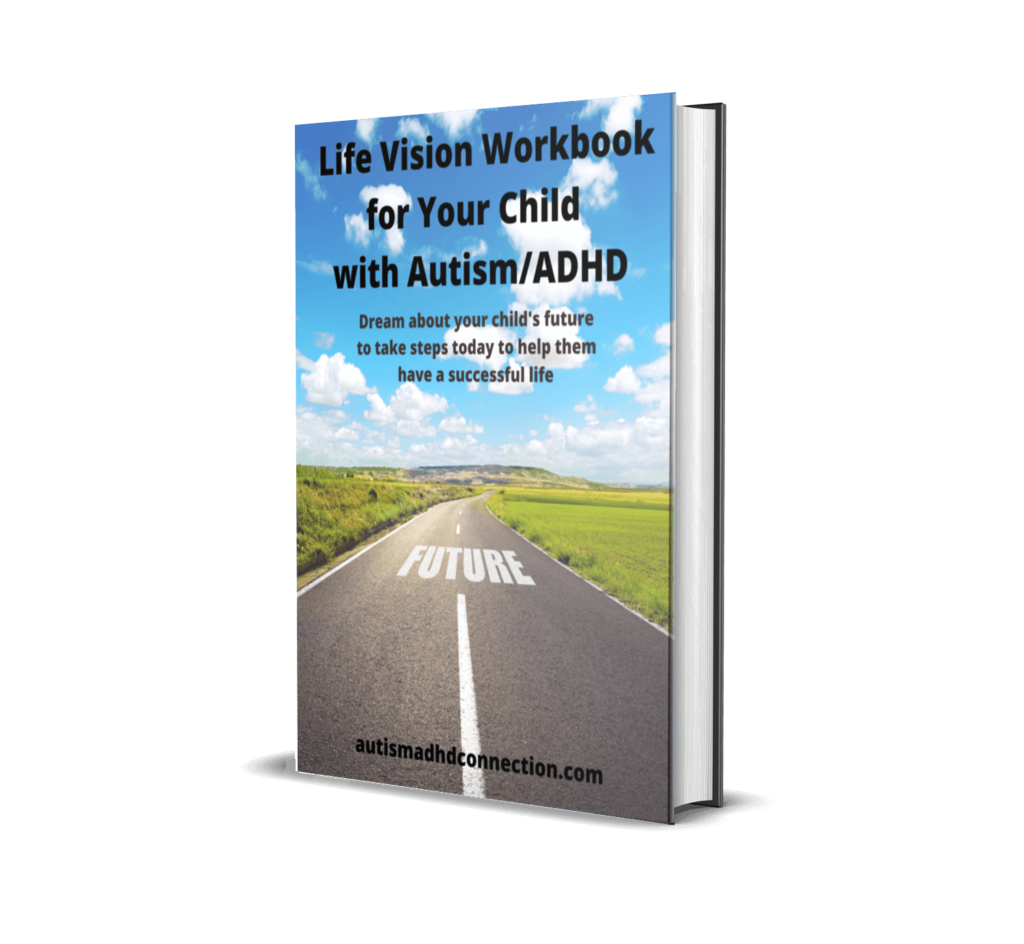While some teenagers are excited about life after high school, others are scared about being an adult and all the responsibilities that come with it. When you have an autistic and ADHD teenager, life after high school can be scary for both teen and parent. Most of the support systems from school and other organizations stop for autistic adults around age 22. That leaves you as the parent or caregiver and your teen with a lot to figure out. So how do you talk to your autistic teen about the transition after high school?
Figure out your teen’s life vision
My son J was having a lot of anxiety about taking on more responsibilities around the house, getting a part-time job and learning to drive. Those are big steps toward being more independent and becoming an adult. He felt overwhelmed and had some meltdowns. When I was able to get him calm, we were able to talk about the root of the feelings he was having. He was scared of growing up. J had never imagined himself as an adult.
While I had gone through the exercise of imagining J as an adult through a life vision exercise, I had never had him to do it himself. So, we set up a time and worked through my life vision workbook (free download if you’d like to use it as part of the conversation with your teen).

Talking through the questions in this workbook really helped J express what he wanted his life to be like when he is an adult. It provided perspective on what he really wants to do as a career, what type of post-secondary education he needs, what life skills he needs to develop, and more. This would be a great exercise for you to do with your autistic teen as well to open the discussion around the transition after high school.
Discuss post-secondary education and jobs
Through the life vision exercise, your teen may identify one or more career interests. Now is the time to discuss what type of education after high school would be needed. Do you need to research trade school and apprenticeship options? Can your teen attend college? If so, will they need or want to start first at a community college? Does your local community college have a partnership already established with a local four-year university? What are the requirements for admission? What accommodations does your child need from College Board on college exams like the PSAT, SAT and AP?
If your teen does not or cannot attend post-secondary education but will be able to work a job, consider reaching out to Vocational Rehabilitation (they have agencies in every state in the United States). They have job coaches available to help your teen evaluate and prepare them for working a job. (If you live in another country, research to see if your government offers a similar program.) This is what we did to prepare our son J for his first part-time job while he is still in high school. It took about three months in the discovery phase to determine his strengths, skills and what types of part-time jobs located around us would fit him. Then his job coach helped him apply and attended the job interview with him. J starts soon, and his job coach will be on the job with him for his first three months. It was a longer process than I expected, but I think it really is setting up J for success.
Talk about life skills development

It wasn’t until I was an adult that I realized all those chores and special projects around home that I had to do as a teenager was actually my parents teaching me valuable life skills. As much as I didn’t like doing them, I wish my parents had made me do more. (Dad, I know you are smiling at this 🙂
Life skills should be a big part of the discussion with your autistic teen about the transition after high school. J now understands that when I have him clean the bathroom, change his sheets, vacuum, and help me make dinner that they serve a bigger purpose. Sure, he needs to contribute to the work of the home as a family member. But really those chores are essential for him to learn adulting.
For example, J is starting his first part-time job soon. Before he applied, we opened his checking account. He already had a savings account that I opened when he was little so that he could put money in it throughout his childhood to save for his first car. Opening a checking account is a big step toward learning money management by actually doing it instead of just talking about it through a personal finance lessons. (Want to teach your teen about personal finance? See my More Pizza lessons on my autismfinancemom.com blog!) We also set up his first budget categories and his own personal budget on our You Need a Budget (referral link) account.
Want to know which life skills to focus on with your teen? Read my blog post about the most important life skills to teach your teen.
Is your teen ready to learn how to drive? Check out this blog post to find out more.
Discuss dating and sexuality
Does your teen want to date now and/or in the future? Will they want to marry and have kids someday? The former is probably a more difficult discussion to have with your teen. Yet, they are so vulnerable in this area. Our son J has his first real girlfriend, so we find ourselves talking about this a lot with him.
This subject can be sensitive for some parents too since there is a higher rate of autistic people who are lesbian, gay, bi-sexual, transgender, queer and other such a non-binary (LGBTQ). Helping your teen figure out their sexual orientation is important.
A good book to read is Sex, Sexuality and Autism (affiliate link) by Wendy Lawson. This can be read by you and your teen to help your discussion.
Consider Supported Decision-Making
Talk to your teen about their ability to make big life decisions. Do they feel comfortable making those on their own or do you both feel like they need some advisors to do so? If it’s the latter, you may want to consider setting up supported decision-making for your teen when they turn 18 years old.
Want to find out more about supported decision-making? Check out this blog post. It provides information about what it is, the benefits for your young autistic adult, how to set up an agreement and more.
Have you talked to your autistic and ADHD teen about the transition after high school? What else would you recommend? Leave a comment so that we can share and encourage each other on this journey!








